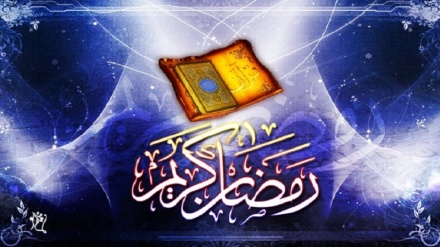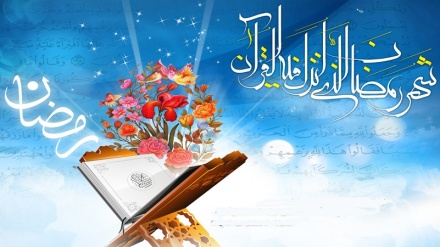Heavenly Call (2)
Welcome to the second edition of Heavenly Call on the occasion of the blessed fasting month of Ramadhan.
Before we start our daily programme here is the special supplication for the 2nd day of Ramadhan:
“O Allah, bring me this day nearer to Your good pleasure, and keep me away in it from Your displeasure and vengeance. Favour me with the opportunity to recite the ayahs of Your Scripture; with Your mercy, O Most Merciful of the merciful.”
As we said yesterday, the holy Qur’an, as the final heavenly scripture for the guidance of all mankind, is the Book of life. It addresses all human beings and has entrusted the true believers with the mission to enlighten others. That is the reason, several ayahs, 90 to be exact, start with the phrase “O you who have faith”.
The question that arises is: what is the meaning of faith?
The Arabic word for faith is “imaan”, which could be translated as “true belief”. It means belief from the depth of the heart in the fundamentals of Islam, the first and foremost of which is “Towheed” or monotheism, which means the indivisible unity of the One and Only Creator of the entire universe. The next is “Adl” or Divine Justice, which means the All-Merciful Lord is Just and never oppresses the least any soul nor imposes any burden more than what that person is capable of enduring. This is followed by prophethood or belief in the messages of the prophets sent by God for guidance of mankind, the Last and Greatest of whom with the universal mission of Islam, is Prophet Mohammad (blessings of God upon him and his progeny). The fourth principle is imamate or divinely-designated leadership, which means firm belief in the Infallible Successors of the Prophet of Islam. The 5th and final article of faith is Resurrection, which means belief in the Day of Judgment and the raising to life of the dead in their original form, shape and size, for reckoning of deeds that either bring the perpetual bliss of paradise or the punishment of hell, and that too after much forgiveness and mercy.
Once a group of Bedouin Arabs claiming that they have attained the degree of “imaan” or faith, came to Prophet Mohammad (blessings of God upon him and his progeny). In response to their claim God Almighty revealed ayah 14 of Surah Hujuraat, which reads:
“Say, ‘You do not have faith yet; rather say, “We have embraced Islam,” for faith has not yet entered into your hearts”.
As is clear from this ayah, verbal acknowledgement or reciting the two-fold testimony of faith concerning the Oneness of God and the mission of the Prophet, means the first step toward belief, that is, embracing Islam, but it is “imaan” or faith with conviction from the depth of the heart that is true belief and this determines the final fate of an individual, whether he/she is deserving of the bliss of paradise or the punishment of hell.
Thus “imaan” or faith is totally different from lip service, and stems from consciousness, conviction, insight, and proper cognition of God, His messengers and His commandments. As is clear by ayah 108 of Surah Yousuf, God Almighty commands the Prophet to say to the people:
“Say, ‘This is my way. I summon to Allah with insight —I and he who follows me.”
As is evident from this ayah, it is faith, “imaan” or true belief that makes a person abstain from sins and bad behaviour and inspires him/her to perform good deeds by practical adherence to the tenets of Islam, that is, conscious observance of rituals with firm belief, rather than the superficial performance of acts of worship that lack conviction.
It is for this reason that in many ayahs of the holy Qur’an, whenever mention is made of “faith", the phrase “doing of righteous deeds” immediately follows. For example, the brief but crucial Surah Asr in which God says human beings are losers except those who have faith and do righteous deeds, reads: “By Time!” “Indeed man is in loss;” “Except those who have faith and do righteous deeds, and enjoin one another to [follow] the truth, and enjoin one another to patience.”
The point to note here is the quality of deeds and not their quantity. In other words only those good deeds that stem from faith are worthy, while any deed, however good in appearance, but not based on faith or conviction, is worthless. In ayah 2 of Surah Molk, the holy Qur’an says:
“He, who created death and life that He may test you [to see] which of you is best in conduct.”
In this ayah, the word “ahsan” or “best” has been used by God to determine the quality of conduct and deed, rather than emphasis on quantity or aimless performances.
Faith means total acceptance of all divine teachings as taught by the Prophet and his rightful heirs, plus belief from the heart in each and every ayah of the holy Qur’an. In contrast, those who accept parts of the divine teachings and sections of the holy Qur’an, while doubting or rejecting others, cannot be called real Muslims, let alone true believers. The holy Qur’an censures such people in ayah 150 and 151 of Surah Nisa, saying:
“Those who disbelieve in Allah and His prophet and seek to separate Allah from His prophets, and say, ‘we believe in some and disbelieve in some’ and seek to take a way in between.
“It is they who are truly faithless, and We have prepared for the faithless a humiliating punishment.”
These ayahs draw the line between the true believers and the faithless, since the holy Qur’an, in all its entirety, is the Revealed Word of God Almighty, and no one has the right to add or delete from whatever the All-Wise Creator has said and determined.
Another important point is sincerity of faith, and this cannot be determined unless one fully practices what he/she claims to belief, without leaving certain injunctions or expressing doubts about them, which is a sign of hypocrisy. God says in ayah 15 of Surah Hujuraat:
“The faithful are only those who have attained faith in Allah and His Prophet and then have never doubted, and who wage jihād with their possessions and their persons in the way of Allah. It is they who are the truthful.”
The gist of today’s edition of Heavenly Call was the difference between “imaan” that is belief with conviction from the depth of the heart, and lip service or mere verbal expression of the two-fold testimony on the claim to accept Islam.
Goodbye and God bless you until we again tomorrow with another interesting edition.
FK/AS/SS


